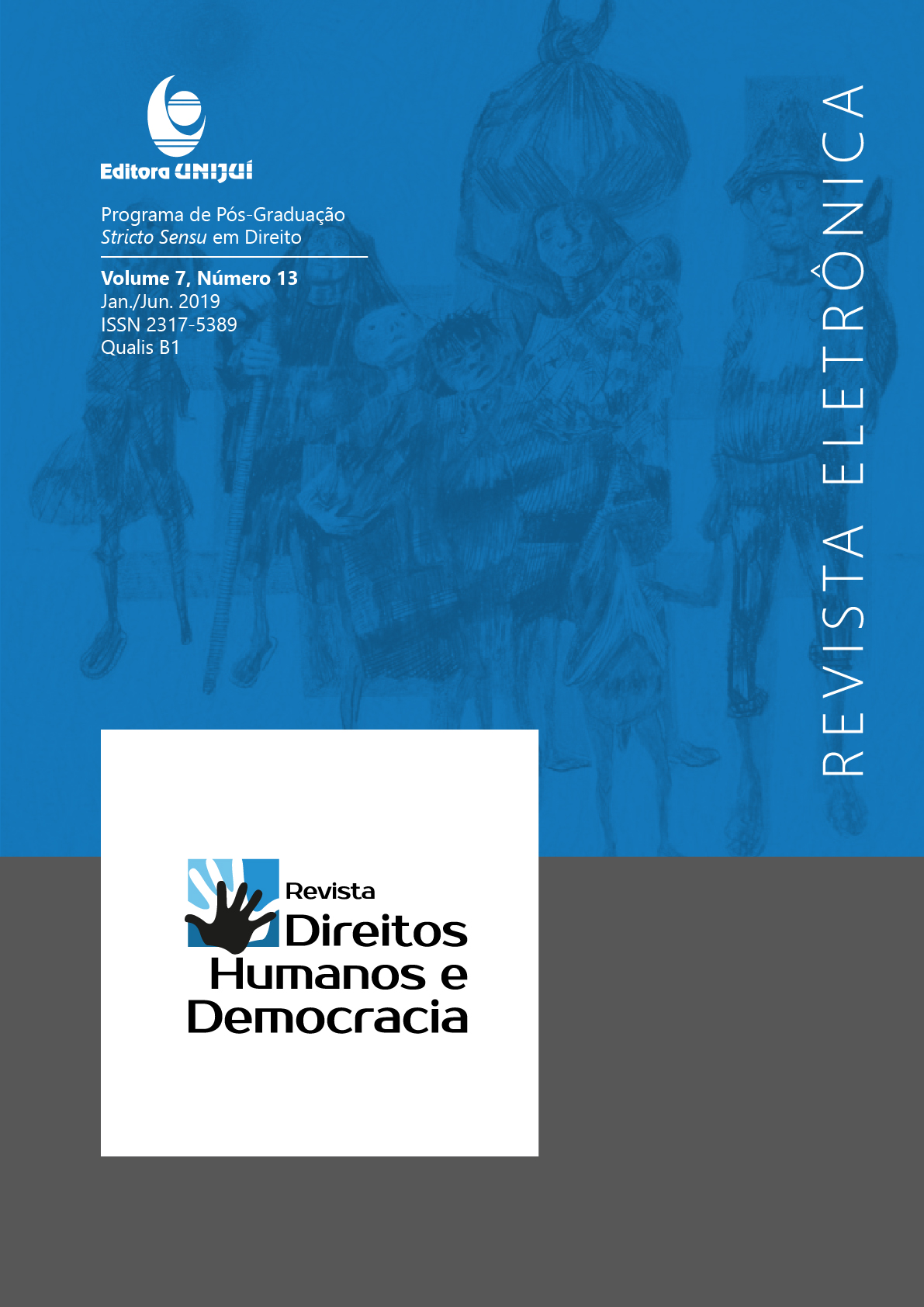Human rights and their protective efficacy in the spotlight: the right to barbarism or the rights of the oppressed?
DOI:
https://doi.org/10.21527/2317-5389.2019.13.280-299Keywords:
human rights; Modernity; Coloniality.Abstract
This article proposes a bibliographical review and makes critical considerations about the historic, theoretical basis and protective effectiveness of human rights. We contrast the normative advance with the concrete vulnerability and denial of rights of wide segments. The text begins with a brief presentation of the foundations of human rights, and contextualizes its consolidation in the twentieth century. In the sequence, are exposed considerations of different authors about their arbitrary implementation and widespread inefficacy. Finally, starting from the referential of sociology and political philosophy We report the fragility of its validity to the very dichotomous logic of modernity that, if on the one hand it is based on a new logic of power based on principles like equality and freedom on the other Maintains the previous inequalities and oppressions, as of gender, class and ethnicity. It is concluded that normative advances continue to be weakened by the practical negation of rights, which can be understood from the very ambiguity of modernity, whose egalitarian ideas are contradicted by the continuity of different forms of domination, discrimination and hierarchies.
Downloads
Published
How to Cite
Issue
Section
License
By publishing in the Revista Direitos Humanos e Democracia, authors agree to the following terms:
Articles are licensed under the Creative Commons Atribuição 4.0 Internacional (CC BY 4.0), which allows:
Share — copy and redistribute the material in any medium or format;
Adapt — remix, transform, and build upon the material for any purpose, including commercial use.
These permissions are irrevocable, provided the following terms are respected:
Attribution — authors must be properly credited, with a link to the license and indication of any modifications made;
No additional restrictions — no legal or technological measures may be applied that restrict the use permitted by the license.
Notices:
The license does not apply to elements in the public domain or covered by legal exceptions.
The license does not grant all rights required for specific uses (e.g., image rights, privacy, or moral rights).
The journal is not responsible for opinions expressed in the articles, which remain the sole responsibility of the authors. The Editor, with the support of the Editorial Committee, reserves the right to suggest or request modifications when necessary.
Only original scientific articles presenting research results of interest, not previously published or simultaneously submitted to another journal with the same purpose, will be accepted.
References to trademarks or specific products are intended solely for identification purposes and do not imply any promotional endorsement by the authors or the journal.
License Agreement: Authors retain copyright over their articles and grant the Revista Direitos Humanos e Democracia the right of first publication.













